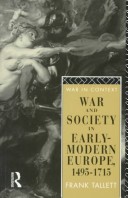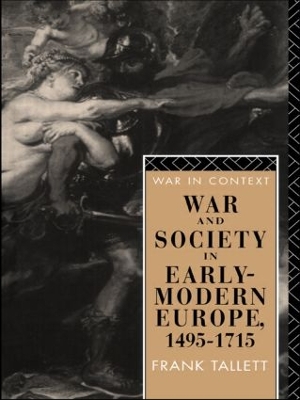War in Context
2 total works
Historians have traditionally been concerned with questions of tactics and strategy, and only recently have they begun to set armies and warfare into their social and institutional context. In this wide-ranging study of western Europe Frank Tallett draws upon the research of French, German, Scandinavian and English scholars to produce a stimulating synthesis which reflects the concerns and preoccupations of the "new military history". "War and Society in Early Modern Europe, 1495-1715" shows how and why armies of unprecedented size were raised, and it examines the ordinary soldier's experience of conflict and his life in the army. Much of the focus is on the impact of war. The technical side of warfare is not neglected, but Frank Tallett demonstrates that changes in the field of tactics and weaponry were much less significant than previously suggested, and did not amount to a military revolution.
War and Society in Early Modern Europe takes a fresh approach to military history. Rather than looking at tactics and strategy, it aims to set warfare in social and institutional contexts. Focusing on the early-modern period in western Europe, Frank Tallett gives an insight into the armies and shows how warfare had an impact on different social groups, as well as on the economy and on patterns of settlement.

